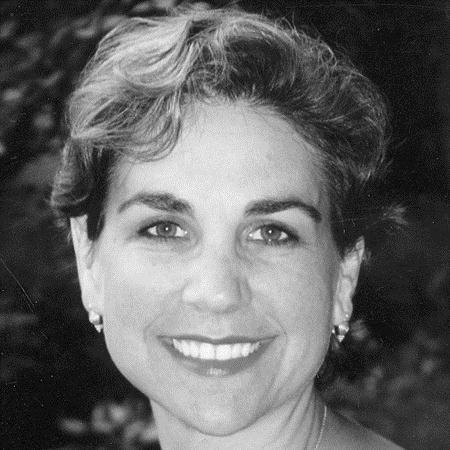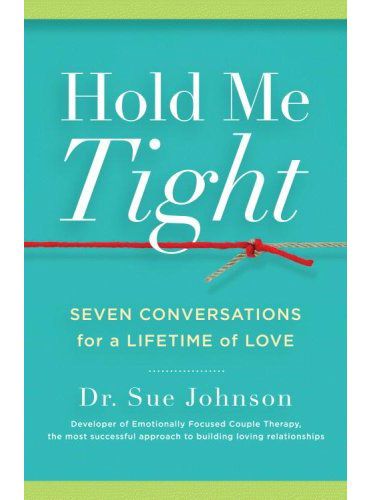 Looking for what a top literary agent advises for how to write a book proposal?
Looking for what a top literary agent advises for how to write a book proposal?
Ever since Dr. Craig Malkin signed on with his literary agent, Miriam Altshuler, he’s been singing her praises to me, as well as sharing some of her specific takes on book proposals. So when I decided to interview several literary agents for my “how to write a book proposal” series, I immediately thought of Miriam.
While many agents suggest that book proposals are getting shorter, Miriam is not a big believer in trends. “How long should a book proposal be? Whatever will best sell it. That could be five pages and it could be fifty.”
Ignore Trends!
Lisa: You recently sold a book on a five page proposal. Can you say why it could be so short and effective at the same time?
Miriam: It was such a unique idea and the perfect author. A New York Times article introduced the subject and it didn’t need sample chapters. The chapter breakdown was very short. In the right circumstances, a proposal can be short.
Lisa: But you wouldn’t focus on making it short….
Miriam: No. You write a book proposal because you have to show editors in publishing houses the scope of the book. Often you spend more time writing the proposal than the book. It makes you do the work to make sure the editor and author have an absolute understanding of the book.
Lisa: You’re pretty firm about not looking for trends.
Miriam: Yes. I look instead at what each situation and each book warrants. Stay true to what your book is and who you are as a writer—reflect your voice in the proposal as well as sample chapters—voice needs to shine through in sample chapters. If an editor doesn’t respond to voice in the proposal, she won’t get to the chapter.
A Short or Long Book Proposal?
Lisa: So when can a book proposal be short and when does it need to be long?
Miriam: I think a book proposal can be short when the book is easier to define and has a real focus that does not need as thorough of an explanation. Also it helps when it is clear that the author is the perfect person to write the book and has a great platform. If a book is more complicated or the author is not well known, then the author will need to write more to convince publishers that the topic is saleable and that they can write the book.
Lisa: Where can you cut corners or shorten a proposal?
Miriam: If the proposal does a good job of introducing the book, you can skip the introductory first chapter and get to heart of the matter with your sample chapters. Some authors do a shorter proposal and use chapter 1 or the Introduction as part of the proposal, so you don’t have too much overlap.
Lisa: What are the longest proposals you’re having success with?
 Miriam: 80 pages with sample chapters. One of my authors, Dr. Sue Johnson, author of Hold Me Tight, wrote a very thorough proposal with two full sample chapters. You read it and knew exactly the book you were getting and she delivered it. Hold Me Tight has gone on to sell well over six figures in hardcover and has had multiple printings. It’s still not in soft cover yet because it’s doing so well.
Miriam: 80 pages with sample chapters. One of my authors, Dr. Sue Johnson, author of Hold Me Tight, wrote a very thorough proposal with two full sample chapters. You read it and knew exactly the book you were getting and she delivered it. Hold Me Tight has gone on to sell well over six figures in hardcover and has had multiple printings. It’s still not in soft cover yet because it’s doing so well.
Lisa: How many queries do you get per week?
Miriam: 200-300 a week.
Lisa: Wow. And how many of those do you end up taking on as clients?
Miriam: It varies tremendously. Some months, I may take on nothing new, but a couple months ago, I had three projects at once. I’m always looking, but I only take on projects I feel I can sell and I keep my list smaller so that my authors get a great deal of personal attention.
A Literary Agent’s Advice for Aspiring Authors
Lisa: What advice do you have for aspiring authors?
Miriam: Research what each agent does and send queries only to agents who handle the work you’re submitting. If I didn’t get as many queries from people whose books were clearly not for me, I would have much more time to go through and read those that could potentially be right for my list. Also, I’m more inclined to pay attention to an author who says, “I’m coming to you because you represent this book or this author.”
Lisa: What do you think of longer queries?
Miriam: The query letter should not be much more than a page, but I like getting the proposal with it and I like getting the first chapter of a novel so I can get as sense of the writing. I don’t mind a longer query—I can read as much as I want and ask for the rest or just delete. Many authors send a very good query letter—they often hire people to help them write it, which is smart, but the work needs to live up to the query letter.
For Nonfiction, I don’t mind getting a proposal. If I really like that I can reach out to the author. Hiring a good freelance editor can help an author make sure their work is polished.
Book Proposal Mistakes and How to Avoid Them
Lisa: That’s unusual. Many agents would not read an unsolicited proposal. What are the biggest mistakes you see?
Miriam: In addition to not researching an agent properly, what’s really important is to be very clear up front what your book is. This seems obvious but it’s not when you read the number of proposals I read. Often it’s a sign that the idea is not fleshed out enough to be a book.
Also, in the query letter, authors need to be clear what their book is about in one to two

One thing that surprises me is choice of chapters used in a proposal. If you have a book that is both prescriptive and narrative, but more prescriptive, don’t send two narrative chapters. In nonfiction, pick two chapters that are most relevant to the topic and represent the book. If you will be using more than one voice in the book, send one chapter of each—show you can do both.
With books that are very prescriptive I see business people or psychologists with very successful practices—and often a large platform. They know how to help their clients based on their practice, they have definite ideas how to do something and a great platform. But when you get down to reading a prescriptive chapter, they haven’t figured out how to translate the personal communication they have when talking to a client. They need to capture that interactive quality.
Test Your Ideas
Lisa: How do you have people do that?
Miriam: Try it out on people—not on your patients or clients who are used to your system, but someone who isn’t familiar. Ask, “What did you get from this? What’s missing? Am I using the right case studies?”
Lisa: Any pet peeves that we haven’t touched on?
Miriam: Too much bulleting. You can bullet on the marketing side, but the heart of the proposal shouldn’t be bulleted. I don’t do the ten quick fixes kind of books. I like books with more substance in research, more narrative. I don’t want bullets to take away from voice. Voice is what I’m looking for.
Three Must-Haves in Every Book Proposal
Lisa: So, that might be different for a prescriptive book, but for narrative books, don’t bullet much. What are three must-haves in a proposal?
Miriam: Marketing section and author section are increasingly important. The first thing a publisher asks is, “What’s the author’s platform?” You may need to repeat some information sparingly. An editor may not read a proposal front to back so don’t miss a chunk about platform in About the Author. If you have a lot of platform, put it under one heading, “About the Author and Marketing” so an editor is sure to see both.
Lisa: Editors have so much on their plates.
Miriam: Yes, many of us who read a lot have short attentions spans. The minute they’re not connecting, they’ll stop reading.
Comparing Books
Lisa: How about the section on Competitive and Complementary Books?
Miriam: It’s important to research this well. I do have access to more recent deals so I will often help an author but they must research what’s out there. Your job is not to badmouth other books—they may be published by the publishers we’re submitting to.
Instead, focus on why your book is different (more up to date), but don’t turn it into a negative. Make it clear, “This book is great but you still need my book because…”
Lisa: Do you just compare your book to books that have sold well?
Miriam: An author came to me recently saying that there are only four books out there on a topic, mine is needed. They were all small presses, showing it’s not a big enough topic. I was on the fence whether it would be more academic or trade, but the four books from university presses didn’t bode well. For a trade book, don’t use four academic comparisons—show some trade books.
Success of another book can help a book—even if not on the same topic, but written in a similar way. Just don’t make it too disconnected.
Lisa: Any guidelines for how to compare your book?
Miriam: Be honest about books. Don’t pick only unknowns and not only the four bestsellers. Compare to books that have succeeded. An editor who loves your proposal needs the ammunition to go into her acquisition meeting and say, “I’m comparing this book to these books.” You do need to have books that have worked. But it’s also okay to have some books that were well reviewed but not huge bestsellers. A book might have had a good idea, but did not work—prove why your book is similar but will work. Be smart about comparisons.
Miriam Altshuler began her career as a literary agent at Russell & Volkening Literary Agency, where she worked for 12 years with such writers as Anne Tyler, Eudora Welty, Joseph Campbell, Nadine Gordimer, and Bernard Malamud.
She established her own agency in 1994 and focuses on literary commercial fiction and nonfiction, but most important to her is the quality of the writing and how the subject is approached. In nonfiction, she is interested in general nonfiction, narrative nonfiction, memoirs, psychology, travel, nature and biography. She represents a number of award winning and best-selling authors.
Get Lisa Tener’s free ebook: 10 Tips to a Book Proposal Publishers Will Love.



Thanks for this, Lisa. Wonderful insights.
Wow! Lisa, I’m learning a lot about book proposals from your writings. Not being an author, I didn’t realize the importance of a book proposal. I will never look at another book the same way. What do you think of books being printed just or kindle and such?
Adalia, kindle can be a great way to get your book out there, but if you’re doing any public speaking you may also want a physical book. You can self-publish if you want to have it more quickly than traditional publishing. E-Book Bakery can do all the formatting for you for kindle and other platforms, like nook and i-pad and then they can also format it for a printed book as well.
Excellent! Thank you so much for this!